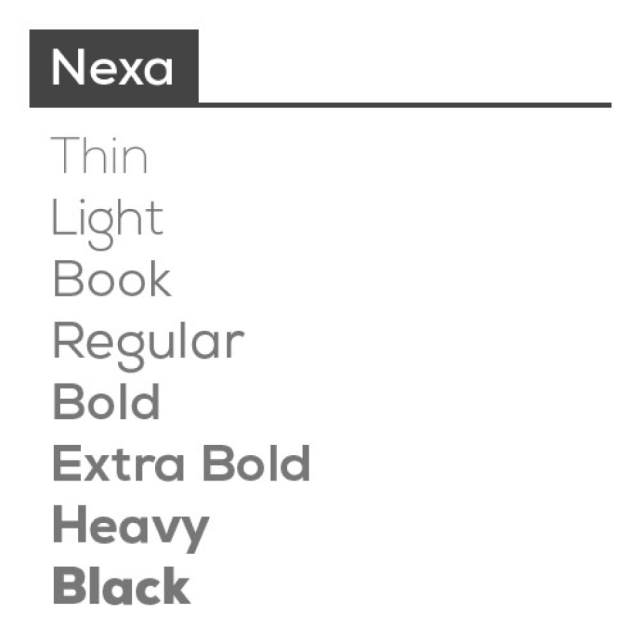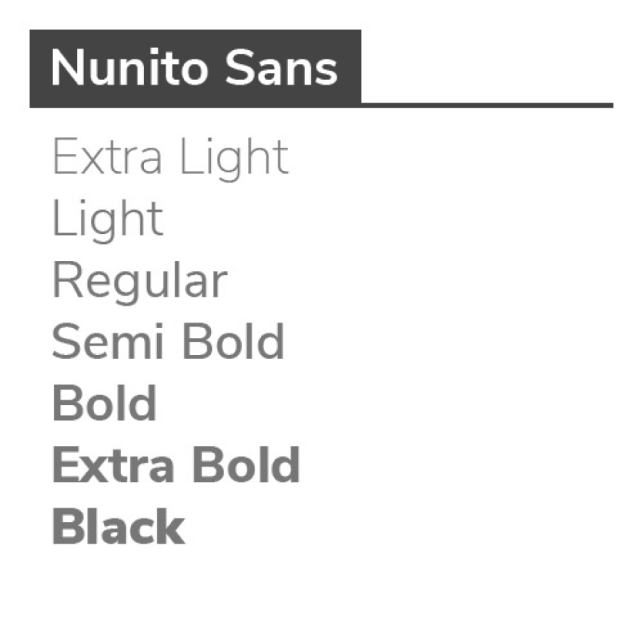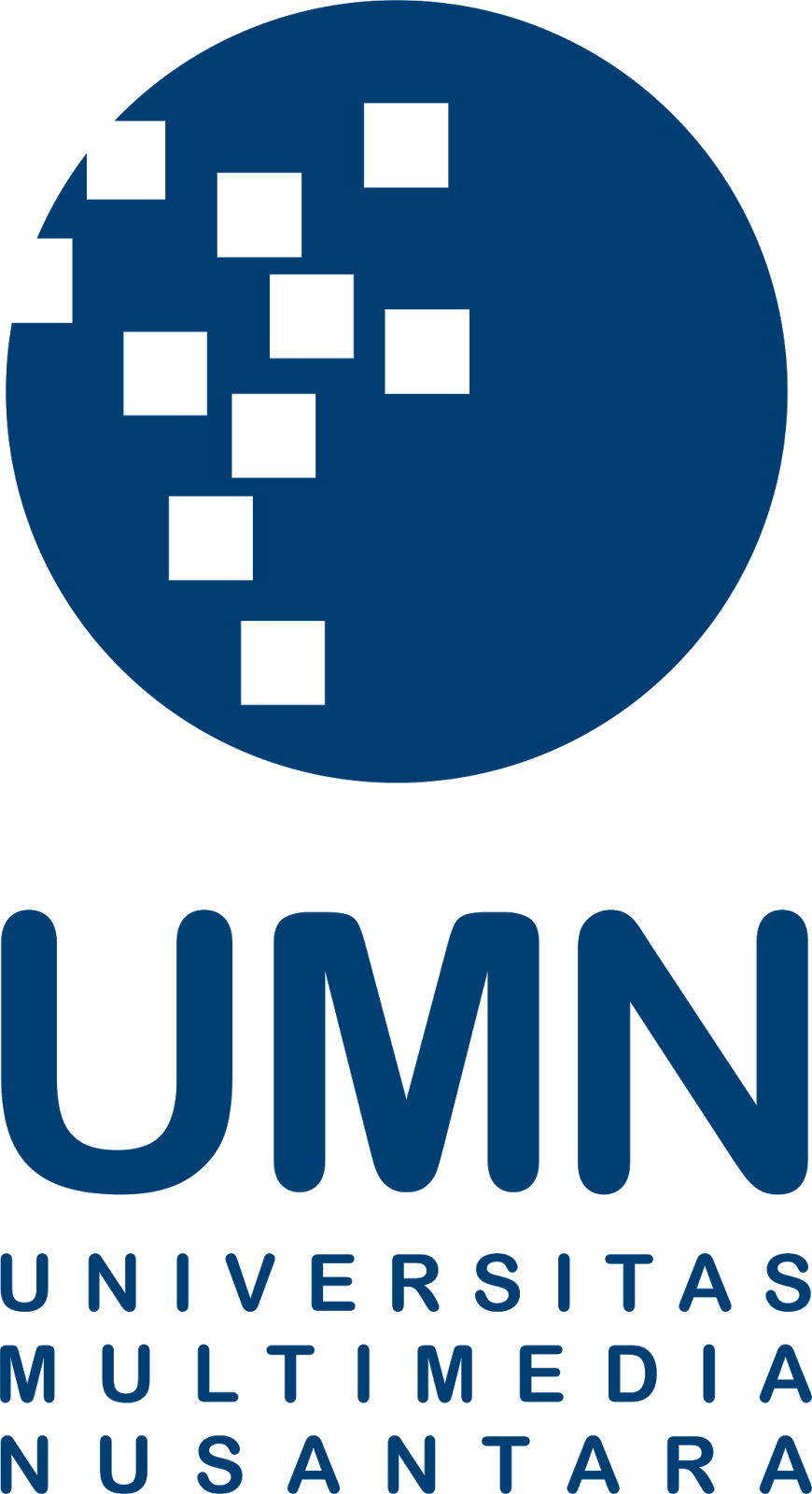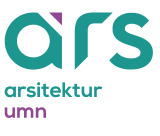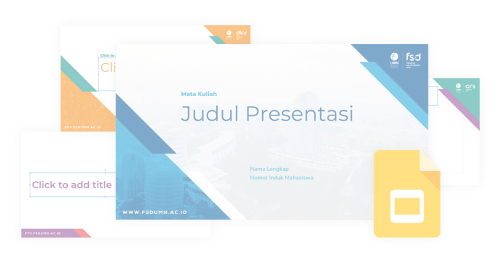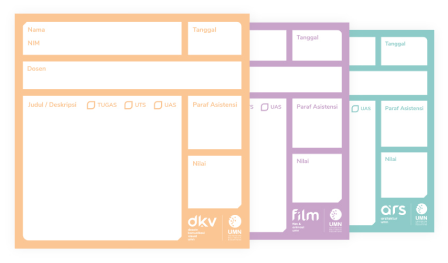ARS Logo Drive
Overview
ABOUT / OVERVIEW / ACCREDITATION
ABOUT / OVERVIEW / HISTORY
ABOUT / OVERVIEW / GENERAL INFORMATION
ABOUT / OVERVIEW / BRAND IDENTITY
Accreditation
Accredited B
Architecture Study Program
Decree No. 1441/SK/BAN-PT/Akred/S/V/2018

History
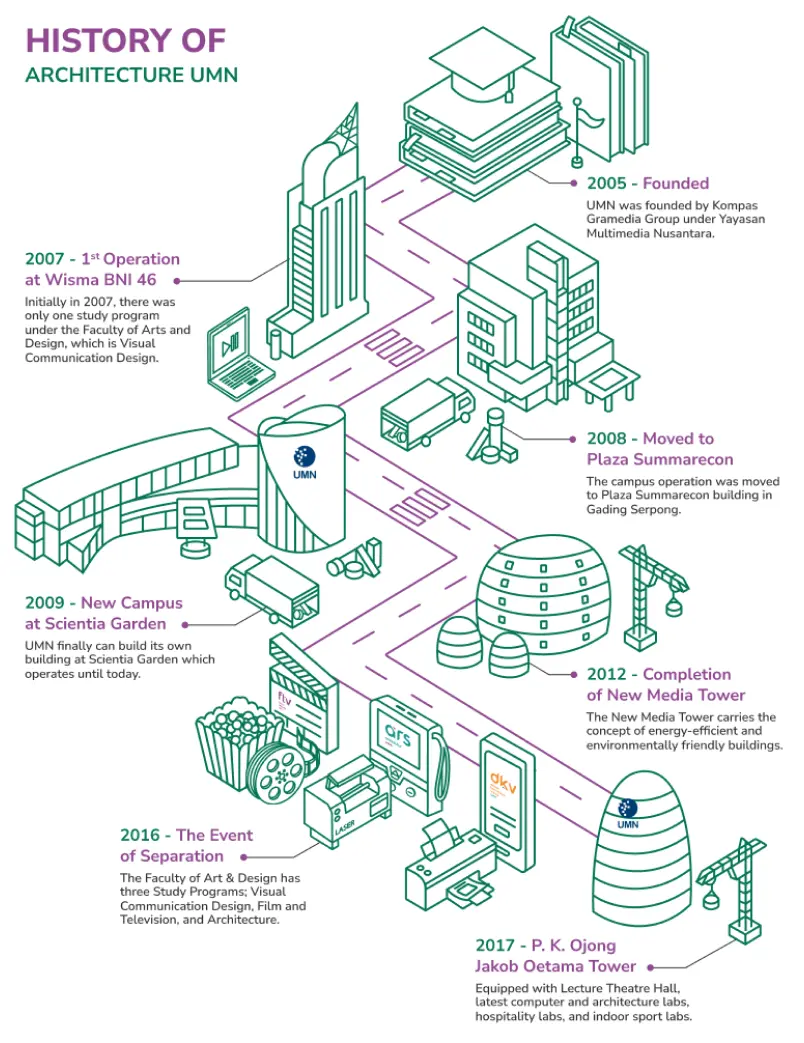
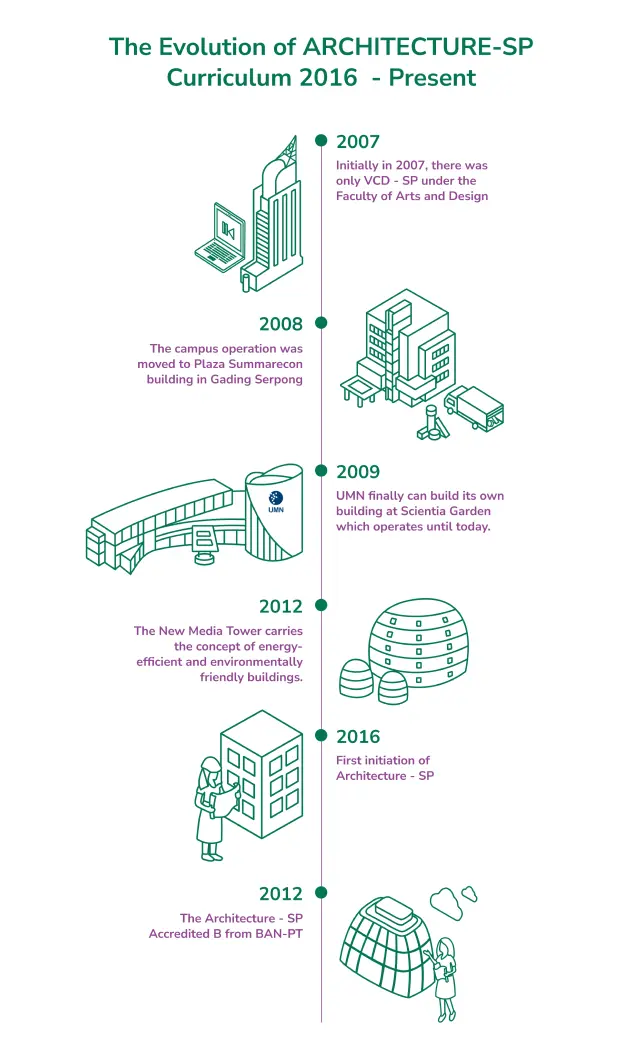
The architecture study program at Universitas Multimedia Nusantara (UMN) began operating on August 26, 2016. In its journey, the UMN Architecture Study Program carried an architectural learning system oriented to a sustainable architecture based on Information and Communication Technology (ICT) in line with the vision and mission study program. The UMN Architecture Study Program equips students with basic knowledge of environmental conservation and sustainable architectural issues while being fluent in utilizing ICT through Introduction to Sustainability, Building Science, Building Systems, Digital Thinking in Architecture, and Computational Design.
The UMN Architecture Study Program achieved “B” accreditation in 2017 through Decree No. 1442/SK/BAN-PT/Akred/S/V/2018. The first fourteen graduates of UMN Architecture participated in the graduation ceremony on November 21, 2020.
General Information
What is Architecture UMN?
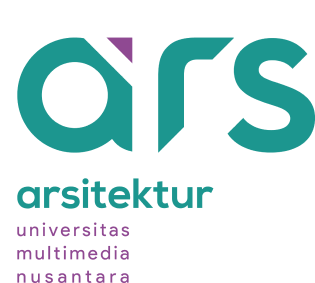
The Architecture Study Program of Universitas Multimedia Nusantara is a Bachelor’s Degree (S-1) study with the Bachelor of Architecture (S.Ars). UMN Architecture Study Program teaches general knowledge and skills which is more focused on sustainable architecture. Because the climate change has become more concerning, it’s important that the graduates of UMN’s Architecture program do not only focus on building design as the primary ability of an architect; they also can design energy-efficient buildings. On top of that, the everchanging and nonstop growing technologies requires the graduates to have the competencies in mastering digital architecture such as BIM-based softwares.

Architecture Education Value
Based on the principles of
Caring
Credible
Competent
Competitive
Customer Delight

Based on the principles of caring, credible, competent, competitive, customer delight, a transcendental humanism philosophy that is the soul of Kompas Gramedia, and the spirit of nationality, UMN provides space for students to be a humanist intellectual, ready to face change, compassionate, intelligent and creative global-minded, virtuous and beneficial to stakeholders, the development of science, and society. UMN is always open and sensitive to developments in technology, science, and the profile of graduates. The learning process is no longer making lecturers as the only source of information, but rather the embodiment of Student-Centered Learning which makes up every part of UMN as a place for students to actively explore knowledge, skills, and competencies related to their field to support Lifelong Learning.
General Information
The Goals
Forming architectural graduates with high competence in sustainable architecture based on technology and ICT (Information Communication Technology).
Produce scientific works in the field of Architecture in the form of research results, designs, and journals that are useful for the wider community and industrial progress, especially those related to architecture.
Conducting continuous architectural service to the community through study program activities, student affairs, and alumni activities.
Leading Vision
The UMN Architecture Study Program has the main advantage, namely Sustainable Architecture (better known as architecture that supports efforts to continue the carrying capacity of nature as a human habitation) with investing advantages in technology and ICT. These three advantages strengthen the work of the UMN Architecture Study Program in the ASEAN Economic Community and global challenges by following the latest technological developments to optimize (efficiency) energy use and reduce negative impacts on the environment (sustainable) as well as prepare the level of competence and competitiveness of graduates with mastery of communication technology and information. (ICT). This study program also produces graduates who have an entrepreneurial spirit and can be independent and have leadership and competitive spirit to be entrepreneurs in their fields and be professional and responsible for their profession and knowledge. This study program also has superior quality in producing graduates who are virtuous, as well as responsive, and sensitive to human and environmental issues, as well as upholding the values of attitude, morals, and togetherness.
Our Faculty of Arts and Design

In accordance with UMN vision, the Faculty of Arts and Design expected the graduates to produce creative, competent and internationally-oriented skills in the field of Information and Communication Technology (ICT) based Art, entrepreneurial and virtuous character.
Currently, there are 3 undergraduate programs under the Faculty of Art and Design: Visual Communication Design, Film, and Architecture.
General Information
General Profile
| Awarding Body or Institutions | Universitas Multimedia Nusantara |
| Teaching Institution | Faculty of Arts and Design - Universitas Multimedia Nusantara |
| Operational License | 99/KPT/I/2016 |
| Program Approved by the National Accreditation Body (BAN PT) | 16 Februari 2016, Arsitektur |
| 1441/SK/BAN-PT/Akred/S/V/2018 | |
| Program Title(s) and UCAS Code(s) | Sarjana Arsitektur (S.Ars. - Bachelor of Architecture) |
| 23201 | |
| Date of Revision | 2020 |
| Program Characters | Outcome Based Education (OBE) |
| Model of Study | Full-time |
| Type of Study | Campus Based |
| Major | N/A |
| N/A | |
| Admission | Senior high school and pass the entrance exam or meet the invitation scheme criteria |
| Registration Period | Enquiries, Test, and Registration: June - July next year |
| Test: week 1 and week 3 every month | |
| Test Result: week 2 and week 4 every month | |
| Admission (Final Submission/Re-registration): Agustus 13rd, 14th, 15th | |
| Entry Requirement | Regular test path |
| High School academic report path | |
| Non-academic achievement path | |
| Refrence Point Used to Inform the Program Specification | UNESCO/UIA Charter of Architecture Education |
| 13 butir kompetensi IAI [Ikatan Arsitek Indonesia] | |
| Intended Level of Completed Program (in line with IQF) | In line of IQNF 6 (Indonesian Qualification National Framework) |
| Graduation Requirement | Completing 144 credits |
| Fulfilling 20 SKKM | |
| Program Aims | The program aims to prepare students for professional practice in architecture and related fields for the pursuit of advanced degrees or professional degrees by educating them the fundamental concepts,knowledge, and required competencies in undergraduate architecture education while being aware of the sustainable practice and ICT use in design and construction fields. |
| Program Vision | The primary purpose of the architecture department at Universitas Multimedia Nusantara is to produce graduates who are creative, innovative, and qualified with a global outlook. The program seeks to develop students with an orientation towards sustainable architecture practice based on ICT approach, entrepreneurial spirit, and virtuous manner. |
| Program Mission | To conduct learning process that is supported by qualified faculty members and up-to-date curriculum that is link and match to professional practice |
| To conduct researches that contribute to the development of sustainable architecture practice with an emphasis on the ICT approach to problem-solving | |
| To apply architectural knowledge in community outreach activities and projects | |
| Program Objectives | Produce architecture graduates who are equipped with sustainable architecture competencies utilizing state-of-the-art technology and ICT |
| Produce scientific works in architecture that include research, design, and journals that benefit the society and architecture-related industries | |
| Conduct community outreach utilizing sustainable architecture approach through department, students, or alumni activities | |
| Program Outcomes | 8 group of competencies, which is further elaborated in 36 expected learning outcomes. The group of competencies include (1) Design (2) Cultural and Artistic Studies (3) Social Studies (4) Environmental Studies (5) Technical Studies (6) Design Studies (7) Professional Studies (8) Skill |
| Indications of Program Quality | BAN-PT B-grade accreditation |
Brand Identity
Philosophy & Identity
The identity of Architecture refers to the Faculty of Art and Design of Universitas Multimedia identity, which is represented by a triangular shape designed by considering the level of sustainability in meeting the development needs of the faculty in the future. The meaning of this triangle shape is the motivation to improve its image as a leading educational institution to improve the quality of human resources in Indonesia.

Logo
The triangle pointing to the top right ( ◥ ) represents the progressive value, namely change towards a better direction by creating works that can solve human problems with their environment.
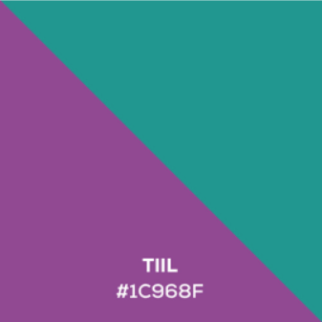
Color
The primary color is tiles which represent the value of environmental awareness. The combination with the purple color means students of the Architecture Study Program utilizing the latest technology in creating works that solve ecological problems.
Variant
Vertical Variant
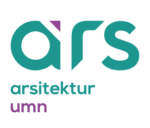
The main logo variant is used with a vertical text configuration below the logo.
Horizontal Variant

Variants are used for particular purposes on media that require shorter sizes.
Download File
The identity of Architecture is available for download and use as needed. Its use must follow the rules that have been set. Any misuse and/or dissemination of false information may be subject to legal sanctions.
Note:
Make sure you are logged into your Microsoft account using @student.umn.ac.id email account or @lecturer.umn.ac.id email account before downloading the file. Access requests will not be granted if you do not log in using e-mail with the umn.ac.id domain.
Brand Identity
Use Guide
The use of Architecture identity must follow the rules and prohibitions contained in the following section to maintain consistency and professionalism.
Rules
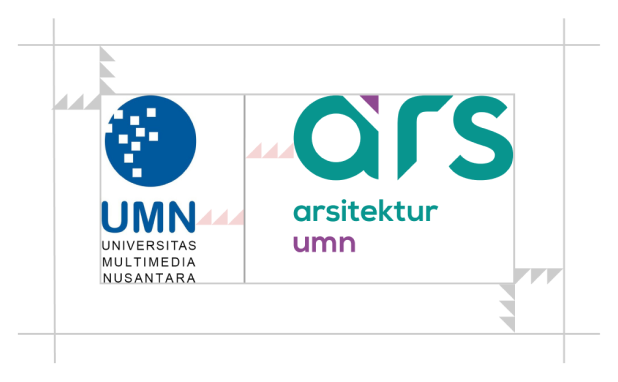
1. Size and Distance
The identity must have an empty area limit on each side specified at least three times a triangle, intended to maintain balance and legibility in the identity displayed.
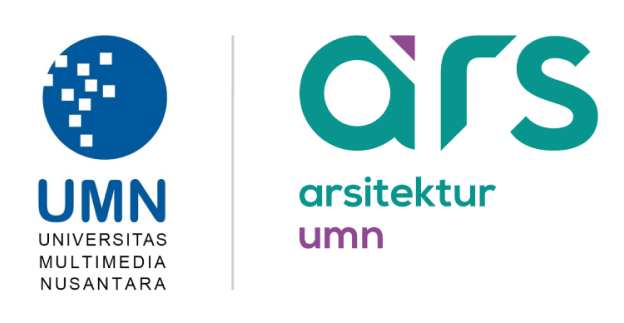
2. Acronym Variant
When there is a UMN logo, the vertical variant will be used for consistency. The acronym aims to lighten the visual burden (the acronym explanation has been included in the UMN logo).
3. Full Variant
This variant is used for publication needs to external parties if the UMN logo is not included as a companion.

4. Diapositive Variant
This variant is used on colored backgrounds or other particular purposes, e.g. stamps or black and white print media.
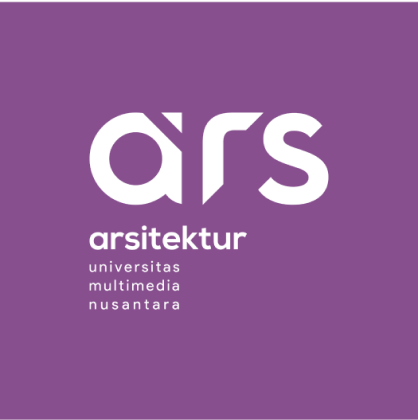
5. Use on photo background
Prioritize using a diapositive variant logo on a transparent/semi-dark background with many colors for contrast.
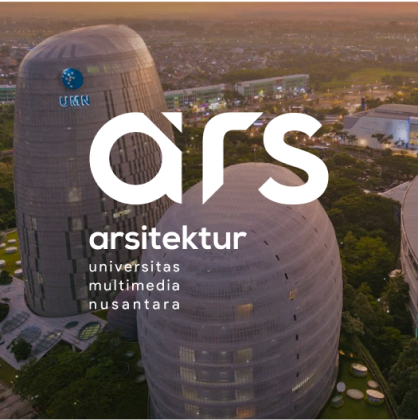
Typography
